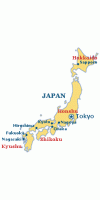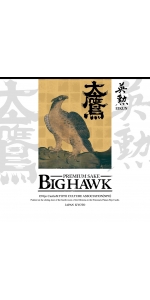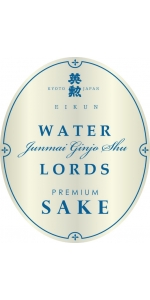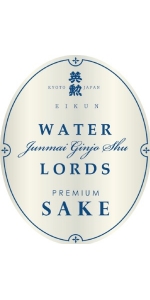Wine from Kyoto

Kyoto is a city in the central part of the Honshu, Japan, surrounded by different prefectures in Japan. Kyoto has four notable seasons divided into summer, fall, winter and spring. Weather brings in very hot summers and cold winters. Rain comes by particularly around June and July.
Kyoto takes pride in Iwai rice where some of the finest sakes are made from. Iwai rice is only sold for the purpose of making sake. Some of the sakes found in the region are the wide variety of Junmai Ginjo and Junmai Daiginjo. Sakes in Kyoto are known for their bittersweet aromas and intense flavors. Fushimi is a place in Kyoto that is known for its large production of sake. There are about 25 sake breweries you can find in Fushimi. Similarly, Chushojima is another place in Kyoto that is famous for its sake production. At some point, Chushojima has been considered as Japan’s sake capitol.
Rice milling: 60%
Rice varietal: Iwai (Only available in Kyoto)
Alcohol: 15%
Sake meter value: +3.0
Acidity: 1.3
Tasting Notes: --------
Eikun sake uses water from a source called "Fusui", rated as one of the top 100 sources of water in Japan. This water source is located just south of the ancient Japanese, and still cultural capital of Japan, Kyoto.
Review:
"Clear with a platinum blue cast. Aromas of coconut milk, melon, pear and rice pudding with a with a supple, dry-yet-fruity medium body and a vanilla, apple, and pepper accented finish. A robust and lively sake that will sing with spicy Asian cuisine."
- Beverage Testing Institute (July 2nd 2014), 91 pts
Sake Eikun Junmai Ginjo Water Lords 12/720ml is made with Iwai rice.
Eikun sake uses water from a source called "Fusui", rated as one of the top 100 sources of water in Japan. This water source is located just south of the ancient Japanese, and still cultural capital of Japan, Kyoto.
Aromas of macadamia oatmeal cookie, spicy zucchini bread, and vanilla cream with a satiny fruity-yet-dry medium-to-full body and a layered, banana custard, jicama, salted whole nut, apple, and radish nuanced finish. A Wonderfully vibrant and flavorful sake.-Beverage Tasting Institute 94 points (Exceptional)
RATING: 94 points (Exceptional)
CATEGORY: Junmai Ginjo Sake, Sake
ALCOHOL BY VOLUME: 15.3%
TASTING LOCATION: In Our Chicago Tasting Room
TASTING DATE: Dec-05-2012
WINE ID: 200768
Made with Iwai rice.
Eikun sake uses water from a source called "Fusui", rated as one of the top 100 sources of water in Japan. This water source is located just south of the ancient Japanese, and still cultural capital of Japan, Kyoto.
Rice milling: 60%
Sake Eikun Junmai Ginjo Water Lords is made with Iwai rice.
Eikun sake uses water from a source called "Fusui", rated as one of the top 100 sources of water in Japan. This water source is located just south of the ancient Japanese, and still cultural capital of Japan, Kyoto.
Aromas of macadamia oatmeal cookie, spicy zucchini bread, and vanilla cream with a satiny fruity-yet-dry medium-to-full body and a layered, banana custard, jicama, salted whole nut, apple, and radish nuanced finish. A Wonderfully vibrant and flavorful sake.-Beverage Tasting Institute 94 points (Exceptional)
RATING: 94 points (Exceptional)
CATEGORY: Junmai Ginjo Sake, Sake
ALCOHOL BY VOLUME: 15.3%
TASTING LOCATION: In Our Chicago Tasting Room
TASTING DATE: Dec-05-2012
WINE ID: 200768
- back
Selected Options
Regions
Categories
Pricing
Countries
Regions
Grape Types
Wineries
Organic/Free Shipping
Masseto 2020 is a wine that has embraced all the key traits of the vintage. It displays excellent concentration both in terms of colour and bouquet. They remain persistent and vivid in the glass without subsiding over time. The potency of this wine returns on the palate with beautiful length and balsamic flavours. The integrity of the tannin reveals the ageing potential typical of Masseto.
Review:
Intense and full on the nose, fragrant with ripe black fruit, floral aspects and soft spicing. Round and full on the palate, it's rich and muscular yet tight and neatly coiled with a liquorice, graphite, pepper, cinnamon and clove tang that gives this immediate but enjoyable spice. Feels well worked, juicy with high acidity that lifts the palate and gives freshness and brightness alongside really quite mouthwatering strawberry and raspberry fruit with such captivating dried floral and bitter orange rind aspects. Tannins are super fine and so well integrated yet this maintains a grip and hold from the very beginning through to a long and sustained finish. Nuanced and complex, still packing a punch in terms of power, but this feels sophisticated, suave, purposeful and controlled. Not elegant, this is more of a caged animal with it's full potential yet to be unveiled, but it is classy. A truly delicious wine with so much purity and sense of place. Malolactic fermentation in 100% new barroques, with each batch kept separate for the first 12 months of ageing before being blended and returned to barriques for another year, totaling 24 months. The wine was then aged for a further 12 months in bottle before being released.
-Decanter 100 Points
Walt Clos Pepe Pinot Noir is made from 100 percent Pinot Noir.
Deep ruby in color, the wine carries luscious fruit aromas of blackberry preserves and dark cherry, infused with exotic notes of spice, black tea and pomegranate. The palate opens to a dense and velvety texture laced with flavors of barrel char and salinity, leading to a structured and focused finish.
Review:
Big and rich, with luscious spiciness to the plush dark fruit and berry flavors that are supported by medium-grained tannins. There's plenty of creamy and toasty accents on the open-textured finish.
-Wine Spectator 93 Points
Another Sta. Hills release, the 2019 Pinot Noir Clos Pepe Vineyard saw 10% stems and 10 months in 40% new French oak. It's a little more focused and firm, with classic ripe black raspberry, red plum, and cherry fruits as well as orange blossom, spice, and floral nuances. It too is medium-bodied, textured, and beautifully balanced.
-Jeb Dunnuck 93 Points







